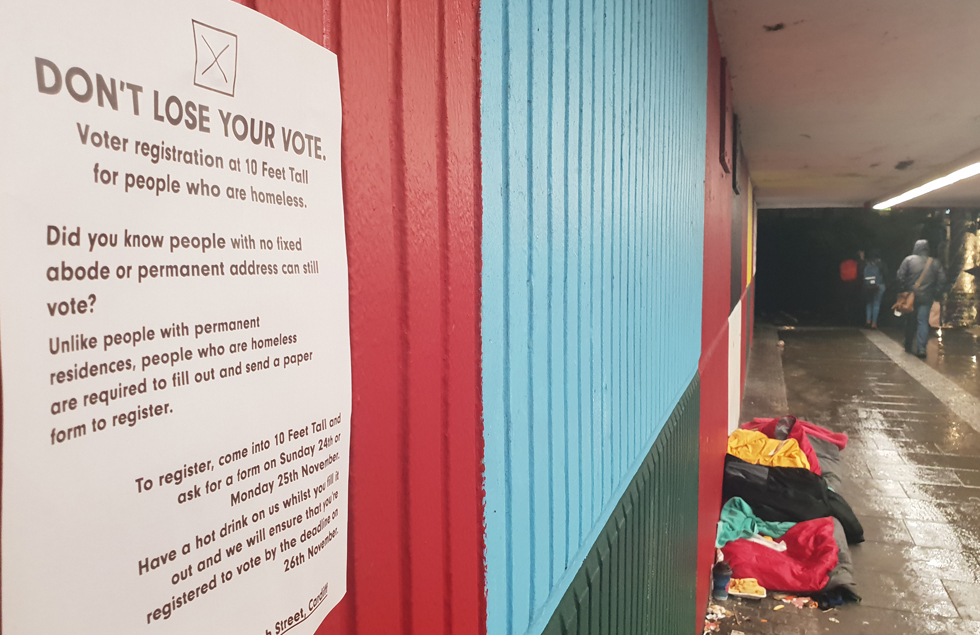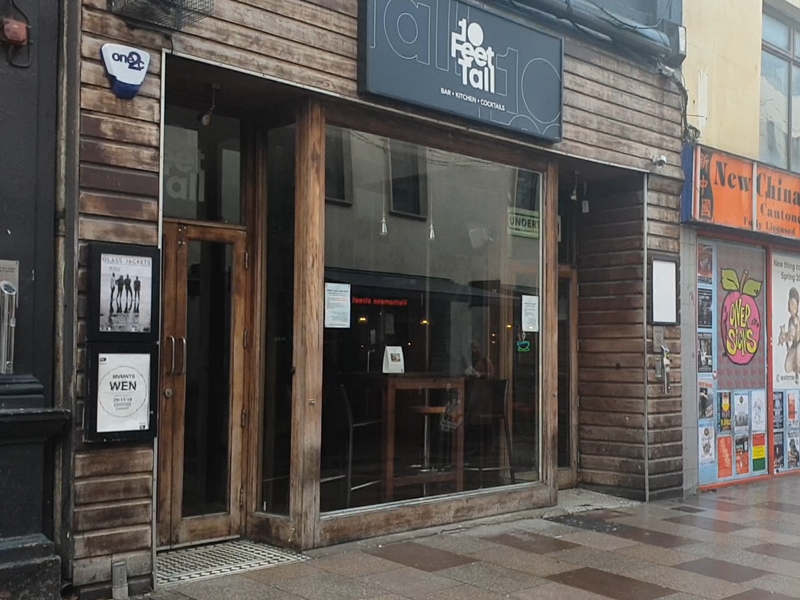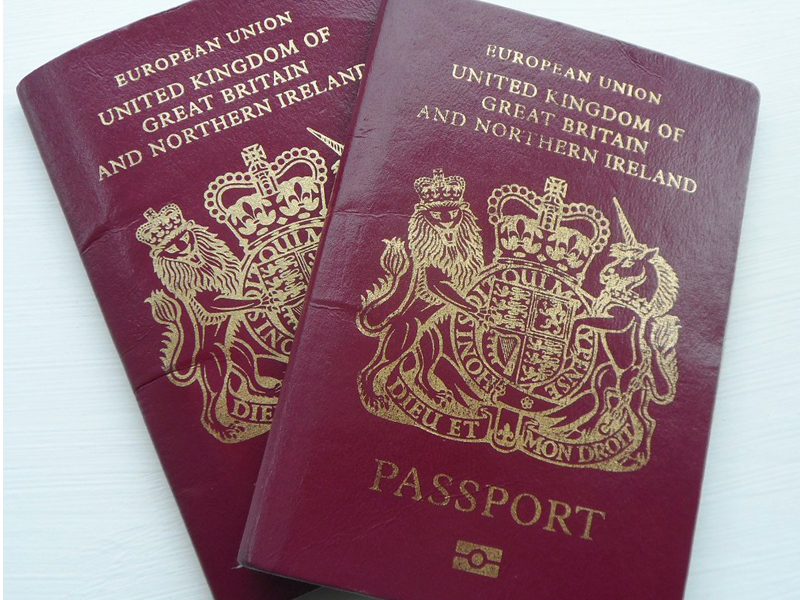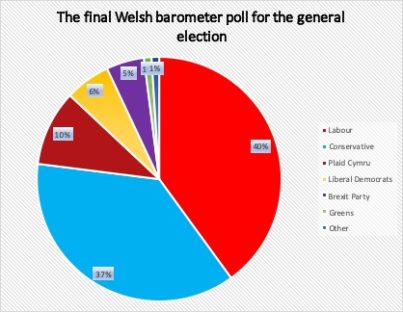Cardiff’s homeless already face an uphill struggle to get their voice heard, and with Boris Johnson looking to introduce voter ID at election polls, it could get much harder

It was a gloomy Monday on Church Street like no other. The cocktail bar 10 Feet Tall is usually closed, but its doors are wide open, and all hot drinks are on the house. It is the day before the voter registration deadline, and homeless people from across the city centre have dropped in to make sure they get their say in the general election.
“It shouldn’t matter if you have fallen on hard times,” explained 10 Feet Tall marketing manager Caitlin Whelan, “If you are a UK citizen you deserve an equal opportunity to vote.”
In truth, Cardiff’s homeless have limited access to the political sphere. Without a fixed address and internet access, those living rough have to find somewhere that will allow them to register, and face the near impossible task of making an informed decision on polling day.
Now thanks to Boris Johnson’s Electoral Integrity Bill, rough sleepers are poised to face a further obstacle that hinders their opportunity to vote, as the government trials identification checks at polling stations.
Isolated, not informed
By the time the bar closed at 5pm, the staff of 10 Feet Tall had registered 12 new voters. To Caitlin, this was proof that homeless individuals do care about politics. “Those who have come in to register have been really grateful for the opportunity to vote, and that has been lovely.”
However, she was startled by just how many sleeping rough thought their vote didn’t matter. “Besides those who don’t see the point in politics, many of the people we talked to felt completely disenfranchised.”
“It’s true,” said Cardiff rough sleeper Darren. “A lot of homeless people, for whatever reason, they have given up with the government anyway. But if you don’t vote, you are not going to change anything.”
25-year-old Darren has been homeless for a year, and was one of the rough sleepers that registered to vote at 10 Feet Tall. Darren has always had a keen interest in politics, but his current situation means that he is almost always left out of the loop.
“They could make politics more accessible,” he continues, “I don’t have access to a TV or the internet. The only information I can get is from newspapers that I find now and again, and those can be biased anyway.”
In order to register to vote, a fixed address needs to be given to receive a polling card. Homeless persons of no fixed abode can also register to vote online, but without help this is relatively obsolete as those sleeping rough have little to no access to the internet.
Darren registered by filling out a ‘Declaration of local connection’ paper form, a document that he says he would not have obtained without the help of the staff of 10 Feet Tall.

Ostracized, not identified
Cardiff’s homeless face difficulties in getting their political opinions heard, and those sleeping rough could face even tougher barriers to expressing their political opinion in the public domain in the near future.
In an attempt to limit voter fraud, Boris Johnson’s Conservative government are currently trialling their Electoral Integrity Bill across a selection of council wards in England, enforcing that all voters will need to show valid photocard Identification at the polling stations in order to cast their vote.
Upon hearing about the bill, Darren came to a troubling conclusion. “I don’t have ID and many others don’t either; if that became law I wouldn’t be able to vote.”
It is true that Darren is one of many without ID. An Electoral Commission report from 2015 found that 3.5 million UK citizens have no access to photographic identification.

Clare Collier, the advocacy director of the charity Liberty, raised her concern to The Guardian in October, “Voter ID is likely to damage election turnout and will worst affect those who are already disadvantaged – including young people, BAME communities and homeless people.”
The bill also states that homeless individuals can apply for a free electoral identity document if the policy becomes law. However, an additional application system only creates further difficulty for rough sleepers like Darren, as they would likely need support to apply for this document too.
“A lot of people have strong opinions but they lose hope that they can do something about it”
Hopeful, not hopeless
However, the Electoral Integrity Bill will not affect Cardiff in the fast-approaching general election. Taking place on 12 December, we are set for one of the most uncertain, and yet most important, general election votes in recent history. With voting margins predicted to be tight, some rough sleepers are realising that they have the potential to make an impact like never before.

“They believe this [election] might change things,” said soup kitchen owner Andrew Mcleay in an interview with the Evening Standard. Andrew has also been helping the homeless of his local area of Ealing to register, and strongly believes that more can be done to make the homeless aware that their vote matters.
He explained, “I think loads could be done. I think a lot of people have strong opinions but they lose hope that they can do something about it. Explaining what each government would mean helps, so giving out manifestos and having political figures visit shelters to explain why their vote matters and why they themselves can enact change is important.”
Back at 10 Feet Tall, Caitlin whole-heartedly agrees. “Public bodies need to make sure more people are aware; they need to come and visit homeless shelter communities to let them know why their vote is important.”
